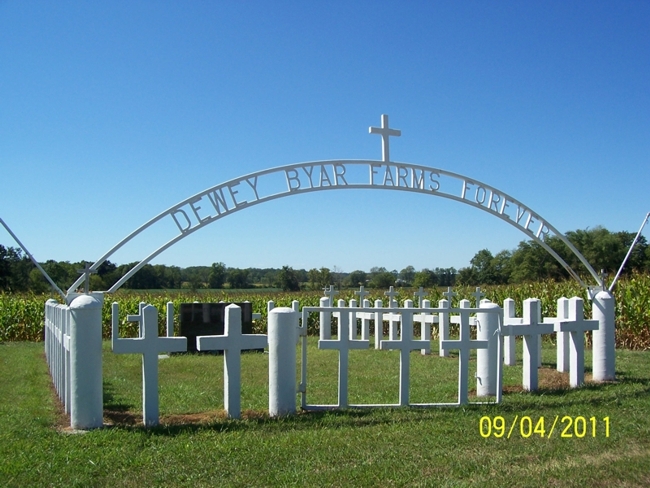|
Iowa Farmer Sows Seeds of Property Tax Relief
Under terms of Dewey Byar's will, an auction of his estate will help finance annual rate cuts for property owners in Des Moines County.
August 18, 2002|TODD DVORAK | ASSOCIATED PRESS WRITER
WEST BURLINGTON, Iowa — Bachelor farmer Dewey Byar never spoke much, although friends said he always loved his neighbors for buying his corn, livestock and hay in this southeastern Iowa river town.
More than two years after dying of cancer, Byar's plan to return the favor is about to unfold in the form of a tax break for everyone in Des Moines County.
The will does not contain a provision to notify taxpayers.
"Dewey would probably prefer that he not be given any publicity about it," said William Hildreth, Byar's attorney and author of the will. "But it shouldn't go unnoticed around here, because it certainly is a generous act."
Just how generous won't be known until auctioneers try to sell Byar's farm, home and possessions. Kent Gaudian, an estate executor and president of West Burlington Bank, said the trust could earn $75,000 to $150,000 annually, depending on the auction and the rate of return.
Byar, who died in April 2000 at a 68, was a shy, bashful and private person, a man who even tried convincing his closest friends not to publish his obituary in the local newspaper.
Still, those who knew him say Byar's final stroke of civic generosity is hardly a surprise.
"It was a well-known fact in his neighborhood that he did not like taxes that were levied by the local, state and federal governments," Hildreth said. "I know he also felt that if there was anything he could do to reduce as much as possible the taxes everyone here pays, then he was going to do it."
Byar left $22,000 to a few relatives and close friends but nothing to his two brothers. A fraction of the auction proceeds will be put into a separate trust that the county can use to maintain where Byar is buried. The remaining sum will be put into the investment trust that will help soften the blow of each of the more than 15,300 tax statements mailed each year by the county auditor. Interest income will be subtracted from the overall tax levy, thus reducing the amount that county auditors use to divide among the county's taxable property.
County Supervisor Tim Hoschek said families here, like others across the country, are suffering from the struggling economy.
"We've been hit pretty hard with several layoffs and plant closings," he said, citing lost jobs at the Case-New Holland plant and the shutdown of the Exide Technologies battery plant last year.
While it is not clear how much the average taxpayer will get from Byar's bequest, "anything will help," Hoschek said.
"That was a nice gesture of him and hopefully it will work out that all the people will benefit from it," he said.
Although he served in the Korean War, friends say they can't remember Byar otherwise leaving Iowa. And aside from his trips to town, often just to buy ice cream cones for his two dogs, he rarely left the boundaries of the farm his parents bought in 1951, friends said.
"I think the time he spent stationed in Missouri and Korea during the war gave him a chance to see all the world he wanted to see," said Richard Osborn, who grew up with Byar and is co-executor of the estate. "He loved the farm and never found many reasons to leave."
Byar even arranged it so that not even death could separate him from his land. He is buried in a private, one-plot cemetery he built along the county road that winds along his farm fields. His black granite headstone features an etching of his farm, its buildings and four silos; an arch over the front gate reads "Dewey Byar Farms Forever."
Osborn said the cemetery summed up Byar's way of living: a preference for solitude and a love for hard work and the land.
"I always got the impression that he just wanted to work until he just fell over and died and could be put immediately in the coffin in his own cemetery," said Tyler Stigge, who worked for Byar for 12 years and helped build the cemetery. "I think he wanted it where it was so people he knew could just drive by and wave."
| 
